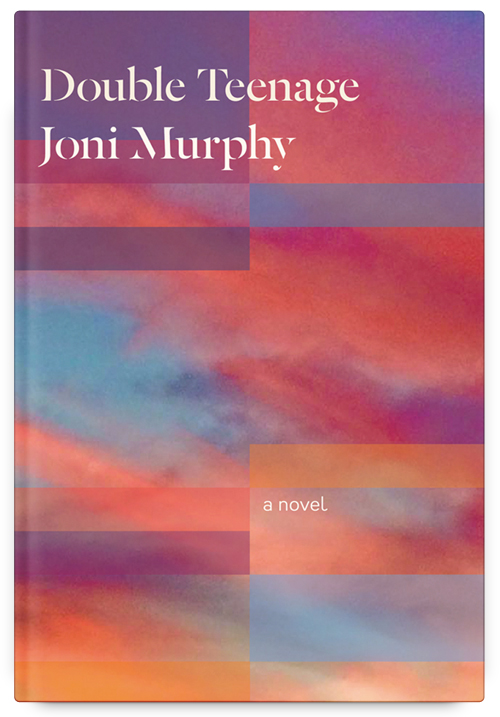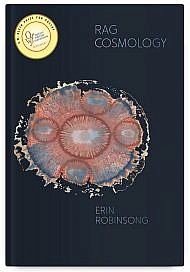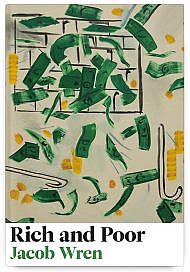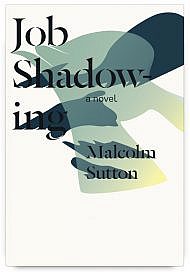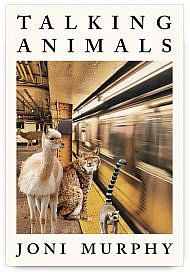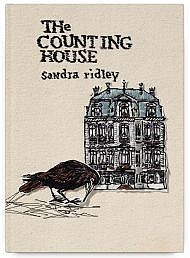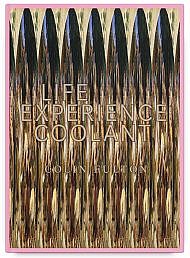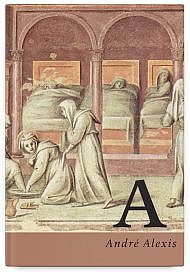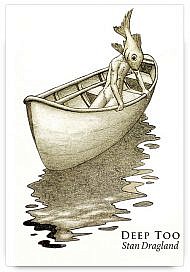Double Teenage tells the story of Celine and Julie, two girls coming of age in the 1990s in a desert town close to the US–Mexico border. Starting from their shared love of theatre, the girls move into a wider world that shimmers with intellectual and artistic possibility, but at the same time, is dense with threat.
This unrelenting novel shines a spotlight on paradoxes of Western culture. It asks impossible questions about the media’s obsession with sexual violence as it twins with a social unwillingness to look at real pain. It asks what it feels like to be a girl, simultaneously a being and a thing, feeling in a marketplace. Wherever they are—whether in a dance club in El Paso or an art lecture in Vancouver—these characters brush against maddening contradiction and concealed brutality.
This is a portrait of the recent past, seen through the cloudy lens of now. Murphy traces the lives of friends struggling within self-destructive realities. Part bildungsroman, part performance, part passionate essay, part magic spell, Double Teenage ultimately offers a way to see through violence into an emotionally alive place beyond the myriad traps of girlhood.
Praise for Double Teenage
“Like the Celine and Julie of Jacques Rivette’s film, Joni Murphy’s protagonists are highly attuned to magical forces. But, growing up Las Cruces, New Mexico, a town that they separately flee for points north, the magic they see is infused with unfathomable violence. From the micro-inflictions of self-harm, to the criminal and systemic violence that surrounds them, they struggle to make sense of their surroundings by whatever means are available to them: sex, romance and drugs; literature and fashion; art, theater, and critical theory. Double Teenage is the definitive book of The Young Girl. It’s also a definitive book about NAFTA, the Ciudad Juárez femicides, spectacular serial killings, culture and class, and the comforting media-lull of repetition. In an effort to understand, if not everything, at least those things that surround her protagonists, Murphy writes with an unforced and calm beauty. Double Teenage is a stunning first novel, moving with stealth and intelligence against the North American landscape.” —Chris Kraus, author of I Love Dick
“In this world / there were two kinds of girls, / Celine and Julie were neither. Joni Murphy’s Double Teenage is a novel of shadowy doubles, tracking the ghosts of adolescent girlhood between America’s “True West” and western civilization itself. At once sober and elegiac, Murphy’s novel snakes from southern New Mexico to Chicago, from the confusions of adolescent sex to the ruins of love in adulthood, from real murder to its images in TV and literature and, yes, theory—passing in and out of a Ciudad Juárez of the mind. Is it possible to survive girlhood? Are dead women the only kind our culture wants or understands? Joni Murphy’s searching new novel is a book of questions which have no answers, questions begged as much by the obscenity of facts as by the record of our phantasms: our movies, our TV, our Bolaño, our borders. Read it.” —Ariana Reines, author of Mercury and The Cow
“Dashes of haptic wisdom come to you if you are born a ‘desert person’—“people as significant as rocks and lizards… backgrounds for alienated men and their beautiful women.” In this sensually written grand tale, two young women break out of the background and take us on a road trip led by technicolour youth vision. As you experience the world through their rarified senses, the whole dark universe opens up in front of you and you can gulp at it and claw and swim into it or bat and scream against it but because of how big it is, it devours and softens each gesture, sound and move you make. This is why we can abandon so easily into divine DOUBLE TEENAGE—into landscapes of sex, love, academia and alternative realms. Murphy proves how deep youth is, how it sees with exquisite senses honed especially pure for those whose first landscape is the comparatively simple desert.” —Alisha Piercy, author of Bunny and Shark
“Joni Murphy speaks to us directly. She speaks to us from a place of borders, of countries, and of languages that are strange to her and in need of reinvention. Through her ear and her eye, through her transmissions from these dusklands, we recognize something actual, an event or place, but cross-examined, rendered and remixed. Sometimes theatrical, sometimes cinematic, always urgent and painted on a broad canvas, unafraid of the depth of each landscape, of the mountains that we cannot see that lie beyond the mountains that we can. Her monologues follow the flow of thought-visual, critical, poetic, nostalgic. She speaks to where we are now-when the ‘we’ is the individual and the body politic, in this historical moment, where this marginal place, through the thought of her writing, becomes the centre.” —Matthew Goulish, founding member of the performance groups Goat Island and Every House Has a Door
“Joni Murphy has made a series of portraits, depictions not ultimately of people, but rather of a specific ambition, the only ambition that she feels is real, or can be real. Here there is an urge toward knowledge, but never knowledge that can be completely obtained. That which can be had completely cannot be trusted, says Murphy. Truth must be partial, glimpsed in bent glass, or found in its afterimage, wounding. Trysts, bodies, beds, books, they function as spurs. Here they are never what they are, but only road signs pointing elsewhere… not to a place but to a sort of journey.”
—Jesse Ball, author of Samedi the Deafness, The Curfew, and A Cure for Suicide
Press Coverage
Quill & Quire 2016 Cover Design of the Year Selection
Big Other’s Most Anticipated Small Press Books of 2016 Selection
“Double Teenage seems like the definitive book of The Young Girl as defined by Tiqqun. It’s also a definitive book about NAFTA, the Ciudad Juarez femicides, spectacular serial killings, and media’s comforting lull.” —Chris Kraus for The Millions
“Murphy seems to suggest this interpersonal connection that endures despite external and internalized misogyny is magic and is its own dizzying and overlapping network of survival and creation. In a culture mostly interested in the spectacle of dead girls, Double Teenage is a formally provocative counter spell to the facts of violence.” —Adèle Barclay for The Rusty Toque
Read an excerpt from Double Teenage by Joni Murphy —The Rusty Toque
“Brilliant and necessary.” —Jade Colbert, The Globe and Mail
“Double Teenage is undoubtedly a feminist text, but it isn’t one that offers a pretty picture of its characters overcoming male-dominated systems of power. The book ends with that cryptic line: “This is a spell for getting out of girlhood alive.” Either this is Murphy’s metaphor for the entire book and the instructions are hidden within its pages, or it is a nihilistic gesture to show that the systems of patriarchy are embedded so deeply within every aspect of our society that only something as impossible as magic can fix it.” —Shannon Tien, Maisonneuve
“…this is a novel gesturing outwards, pointing to the world, using the world and its threads to build something new, offering structure, frameworks, where we hadn’t seen such a thing before. Daring to state that girlhood is significant, even if it’s a stage, and even if it’s a stage.” —Kerry Clare, Pickle Me This
“Joni Murphy’s narrative straddles the line between a character-driven story and a treatise to be discussed, something living and breathing and something only understood from afar. There is more than one way to look at it, more than one valid formula.” —Buried in Print
“Double Teenage reminds me of the spell-like rituals of girlhood and relationships and suggests that the magic of performance and speech by young women has the potential to rupture the system of violence against women in art and the real world.” —Paula Razuri, The Town Crier
“Joni Murphy’s book is attuned to the politics of race and class, and from the beginning her assured, controlled style situates us within the nexus of capitalism and class, white privilege, and gender violence.” —Subashini Navaratnam, Full Stop
“It’s safe to say I thoroughly enjoyed this book, as I read it in one sitting!” —Staff Pick, Librairie Drawn and Quarterly blog
“In lovely and melancholic prose, Murphy captures the suffocation of girlhood’s ritualized growing pains with haunting precision. ” —Summer 2016 Staff Pick, Librairie Drawn and Quarterly blog
“There’s intensity, there’s playfulness, and there’s insightfulness everywhere in Murphy’s Double Teenage.” —Lesley LeRoux, Vagabond City
“Like the American Southwest, Midwest and the Pacific Northwest, and even the Black Lodge in Twin Peaks, girlhood is experienced as both an idealized version of itself in a glossy tourism brochure and as a real place, where violence and horrors abound.” —Rosie Prata, Canadian Art
“Joni Murphy weaves in the femicides in Ciudad Juárez and the Pickton pig farm in BC, creating a tense atmosphere – but centre stage is jointly occupied by Celine and Julie, who discover art and academics and love while trying not to get torn apart because patriarchy. And it has the best last line of any book I’ve read this year.” —Martha Sharpe, All Lit Up
“Double Teenage is a stunning debut, one of the finest novels I have read this year.” —Largehearted Boy
“Double Teenage captures girlhood’s ritualized growing pains….Set in the Southwestern desert in the 1990s, double protagonists Celine and Julie invoke ghosts and magic spells as they try to discern why our culture has so many stories about dead girls” —Kate, Staff Picks 2016: Librairie Drawn and Quarterly
“Murphy’s contextualization of Celine and Julie’s vulnerability against the backdrop of Tiqqun’s Theory of a Young-Girl reinforces the power and precariousness of the young hetero woman post sexual revolution.” —Ruby Brunton, The New Inquiry
“A beautiful, acid-tripping lovechild of MY BRILLIANT FRIEND and 2666.”: Feminist Staff Picks: Coming of Age Stories —Lauren Hook, Editor, Feminist Press
“I felt like my teenage self had finally been seen.” —Sarah Selecky, 49th Shelf
Joni Murphy in Conversation with Chris Kraus —Bookforum
Activiations: A Conversation with Chris Kruas and Sabina Ott (Pt 2) —Hyde Park Art Centre
Book Notes Music Playlist with Joni Murphy —Largehearted Boy
An Interview with Joni Murphy —Bookslut
Character Study: Celine & Julie from Double Teenage —All Lit Up
The Globe 100: Best Books of 2016 —Jade Colbert, The Globe and Mail
2016 Books of the Year —Kerry Clare, Pickle Me This
Favourite Novels of 2016 —Largehearted Boy
Author Interview and January Book of the Month —Shelf Life Books
JONI MURPHY was born in New Mexico lives in New York. Her debut novel, Double Teenage, was named one of The Globe and Mail‘s 100 Best Books of 2016. Her second novel, Talking Animals, was published in 2020.

